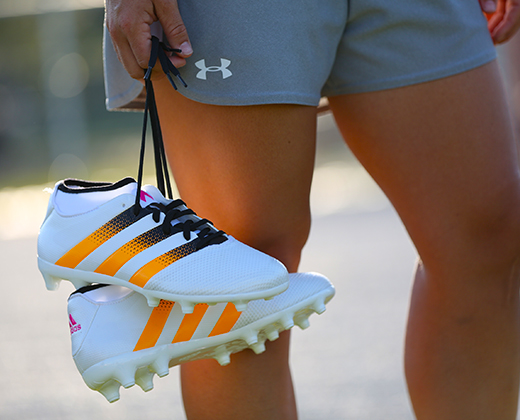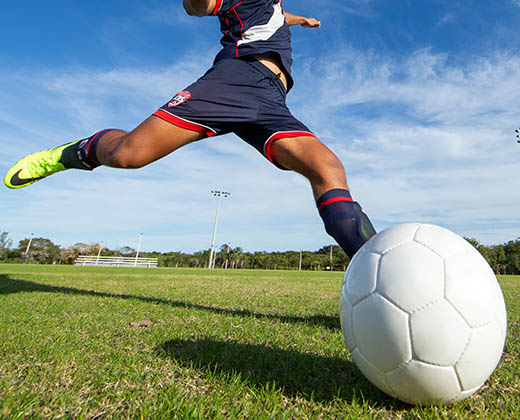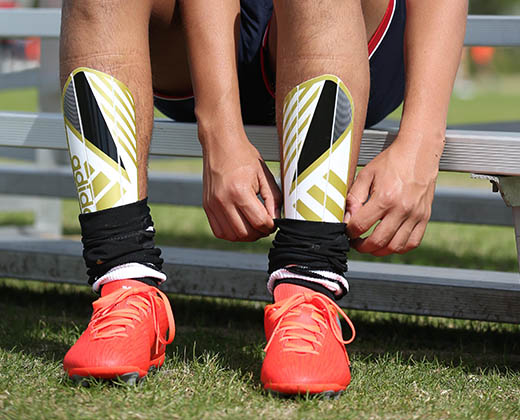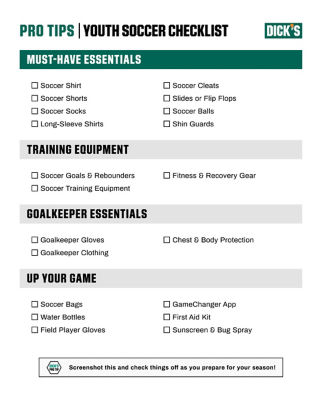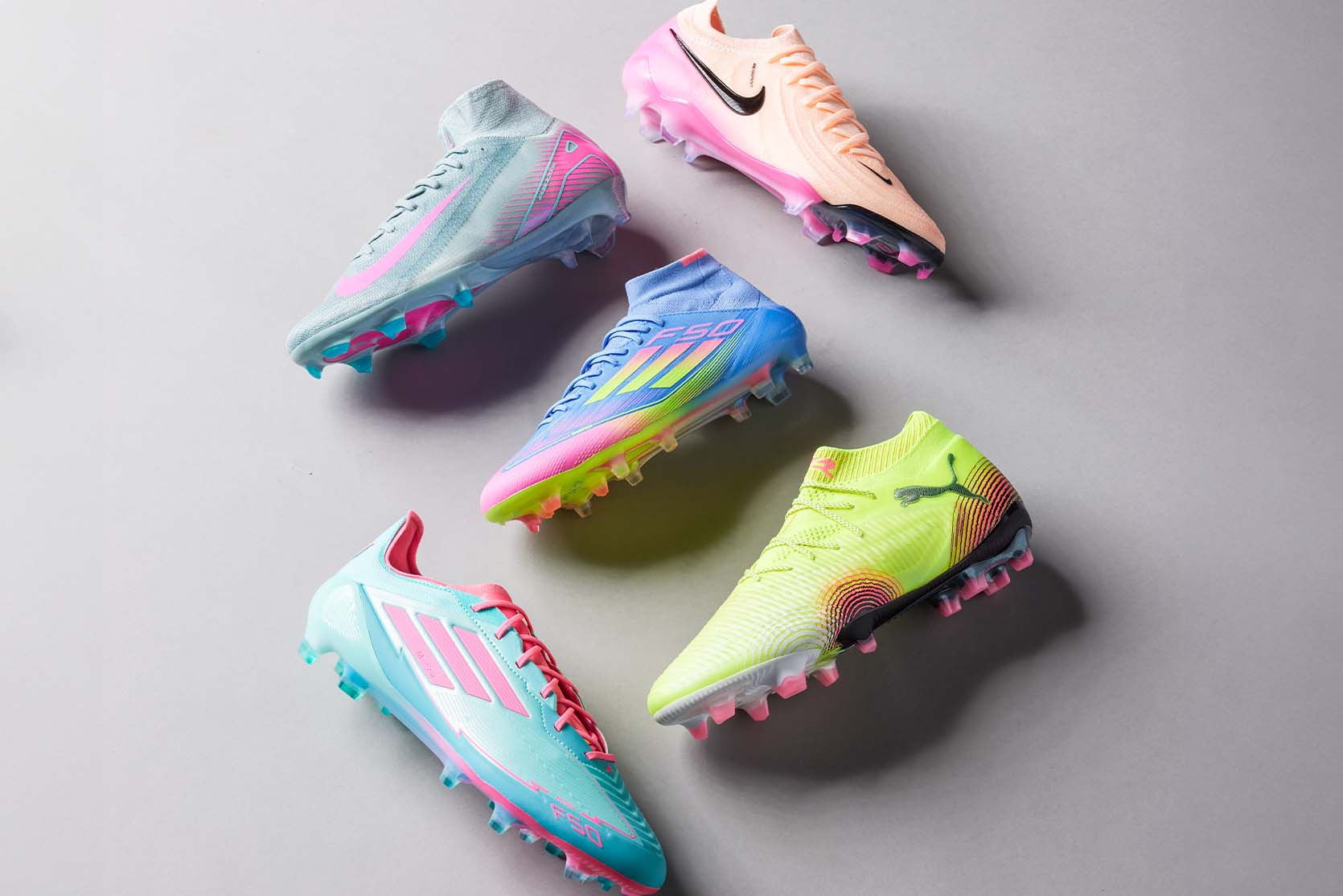How to Prepare for Soccer Tryouts
Be prepared to take the pitch for your upcoming soccer tryout with these Pro Tips.
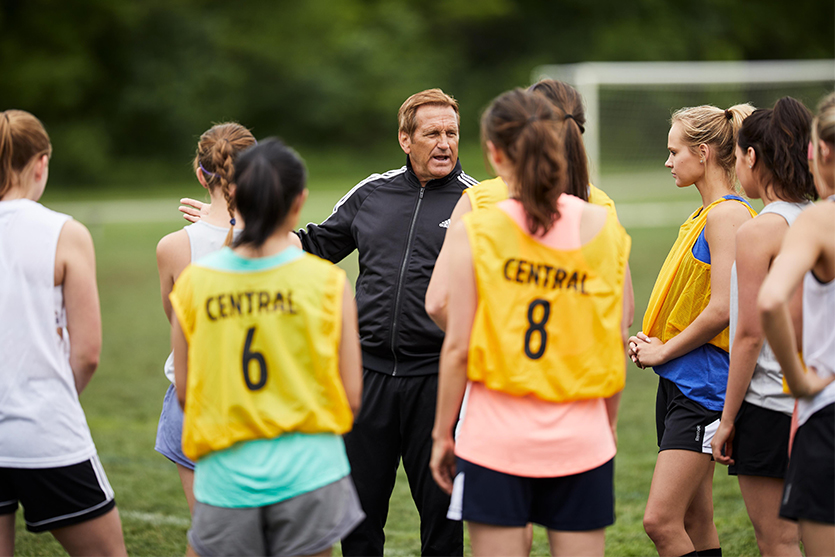
You’ve been waiting for this moment for weeks. Every day you mark off your calendar makes it seem more real.
Tryouts are coming, and you want to be prepared.
Heading into your tryout with confidence is important, but questions are bound to come into play. Should you bring a ball with you? What level of athlete will you be competing against? How long are tryouts? Pro Tips is here to answer these questions and more with help from coaches and former players.
How to Prepare for Tryouts
Show Up On Time
Being on time shows a sense of responsibility. However, having all your soccer gear in check is also an important part of showing up ready to go.
Bring Your Soccer Gear
Remember to pack your shin guards, soccer cleats, socks and water bottle. An extra shirt, pair of shorts and another pair of shin guards can come in handy, too.
DICK’S Sporting Goods Associate and former collegiate soccer player Haley Wright suggests bringing your own ball, too. “If you show up early, the equipment might not be there,” Wright says. “You can get some dribbling and ball handling in.”
Stay Fit in the Offseason
But showing up prepared isn’t just about having your equipment. DICK’S Sporting Goods Associate and high school coach Nicolas Marocco says staying fit throughout the offseason can help give you an edge.
“If you come [in] out of shape, it’s noticeable. Fitness is one of the things that I would say a lot of people underestimate that coaches are looking for.” Marocco says. “If you’re gasping for air after 15-20 minutes, that’s not going to be a good sign. Soccer is a sport based on running, so you have to come into the season in shape.”
DICK’S Sporting Goods Associate and club coach Emily Linner says working out in the offseason can be anything from running laps to getting touches on the ball. “Get tiny touches in and work on your dribbling,” she says.
Need help finding the right offseason soccer workouts? Pro Tips has your guide to five workouts to try at home or at the gym this offseason.
PRO TIP: If you’re vying for a goalkeeper position, make sure to bring along your own pair of gloves. Learn how to find the right pair of goalkeeper gloves with these tips.
Soccer Tryout Tips
Be Ready to Compete in Drills, Scrimmages & Conditioning Exercises
Drills and scrimmages are an important part of soccer tryouts. Sometimes, tryouts can last a week or just three days. It all depends on the coach’s decision and the size of the tryout group.
Meanwhile, conditioning tests are also incorporated into tryouts.
Conditioning can involve evaluating the athlete’s fitness through timed trials. Participants might be asked to run a certain distance or complete a set number of laps around the field. Drills, on the other hand, can be better for technical abilities. Wright says in her experience with tryouts, plenty of the drills were focused on passing.
Other drill examples include one-versus-one situations. This is so coaches can better determine how fast players think on their own. According to Linner, coaches want to see how good a player’s vision is and how they react to being in game-like situations. Marocco agreed, saying that flexibility and being able to move quickly are important.
“Coaches are looking at a player’s agility and their reaction time,” Marocco says. “They have to move in all directions easily. They want to read each player the best way possible.”
Scrimmages are another vital part to your tryout. This is where the coach can see players in action, as if they were in a regular-season competition. Players should approach this portion of the tryout exactly how they would during the season.
“If you’re hustling more than anyone else, a coach will notice that,” Wright says. “It shows that you’re serious. Obviously, hustling during the scrimmage shows that you’re in shape, but for a coach it’s more than that. It shows that you put in the work when nobody is looking.”
Stay Positive
Tryouts can seem tense, and you might lose your place among the crowd at times. However, don’t be afraid to make mistakes. The lesson in making a mistake is learning from it.
DICK’S Sporting Goods Associate and former Division III midfielder Zachary Wahal says everyone has off days. There’s no such thing as a perfect athlete.
“Don’t let mistakes eat you up,” he says. “You have to be positive and go again, be ready to go. You have to chase the ball instead of moping with your head down. When you do make a mistake, go back and fix it.”
Being afraid to make a mistake can also affect your willingness to try new drills or training techniques. “Coaches want to see that you want to take players one-on-one and try to impact the game,” Marocco says. “Just do your best when you’re there.”
Your attitude can heavily influence your impression, according to Wright. However, in addition to having a good attitude, you need to envision success for yourself. Have confidence in your play and trust your abilities.
“When you do the comparing game, that’s a confidence killer,” Wright says. “In the end, everyone you’re trying out with are potential teammates. Don’t focus on the others, but keep your focus on your own game. When you’re in your head, you can’t focus on the drills and do them right. Remember not to outplay your own ability.”
Show Your Leadership Skills
You might be one of the younger players in the group, but anyone can be a leader. Leadership qualities stand out for a coach, no matter how old the athlete is or what grade they are in.
“You don’t have to be the best player in the world to make a difference,” Wahal says. “If a person doesn’t have the right skill set that another player might have, it’s the attitude that counts. Be a team player and don’t try to show off. Keep it simple.”
Marocco says that being a leader can be another last-minute deciding factor. “Are you someone who wants to help motivate other people?” he asks. “Soccer isn’t an individual sport, so you have to be able to fit in and work with the group.”
PRO TIP: Leadership qualities can go a long way for goalkeepers. Marocco reminds goalkeepers to keep communication with all teammates and players, not just the defenders. Organizing your teammates, being vocal and not being afraid of contact can help goalkeepers stand out from the pack.
Have Fun
Take a deep breath and relax before heading into your next tryout. Remember, the other players could potentially be your future teammates and friends. Always show up prepared, focus during your training and keep a positive attitude.
Soccer's Biggest Stage 2026
Use this guide to prep for soccer tryouts, plus get more expert advice, tips and soccer info in our complete collection of soccer Pro Tips.
Watch top soccer players from around the world compete this summer on soccer's biggest stage and gear up with national team soccer jerseys, official adidas Trionda soccer balls and more 2026 world soccer gear at DICK'S Sporting Goods.


